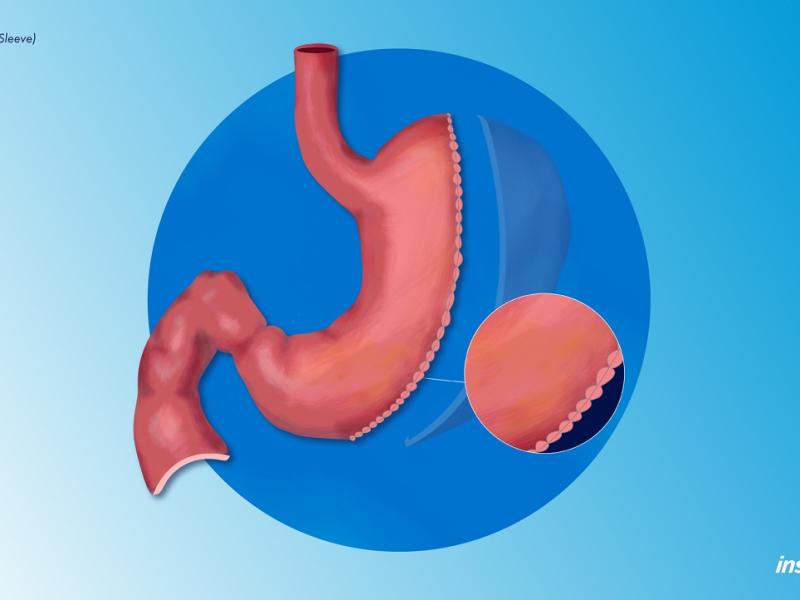Inspira Medical Centers Mullica Hill and Vineland reaccredited as Comprehensive Centers
Read More
If you’ve regained weight or are experiencing complications after bariatric surgery, a revision surgery may be the solution.
Bariatric revision surgery helps patients who previously had weight loss surgery but face complications or weight regain.
While initial bariatric surgeries, such as gastric bypass or sleeve gastrectomy, can be highly effective for many, some people may find themselves facing challenges such as weight regain or inadequate weight loss and adverse side effects like nausea, vomiting, reflux or dumping syndrome—where food moves too quickly from the stomach to the small intestine.
Revisional Bariatric surgery offers a solution for those who need their initial procedure adjusted to meet their weight loss goals or improve their overall health. Through careful evaluation and support, bariatric revision surgery can be a transformative option that helps patients regain control over their weight loss journey, enhances their overall well-being and addresses complications that may have arisen from the initial surgical intervention, leading to a healthier and happier life.

Gastric bypass revision involves modifying an existing bypass to enhance weight loss effectiveness or address complications. This procedure may include alterations to the stomach pouch size or small intestine configuration to improve digestion and nutrient absorption.

In sleeve gastrectomy conversion, the existing sleeve is converted to another procedure. This process can help patients who experience weight regain or insufficient weight loss by modifying stomach size or re-routing the digestive tract.

Adjustable gastric bands may lead to complications over time. Removal of the band, sometimes followed by a different bariatric procedure, can alleviate discomfort and enhance weight loss success for individuals struggling with side effects.

Patients who have had a sleeve gastrectomy and are not achieving their desired results may consider a conversion to gastric bypass. This revision modifies the digestive process further, aiming for enhanced weight loss and resolution of related health issues.
Before a bariatric revision procedure, you can expect a comprehensive pre-operative evaluation. This typically includes meetings with a surgeon, dietitian and a psychologist to ensure you are mentally and physically prepared for the changes ahead. You may need to adhere to a specific diet or exercise regimen leading up to your surgery as well as undergo various medical tests to assess your overall health and readiness for the procedure.
After the procedure, care will center around recovery and ongoing support to help you adjust to your new lifestyle. You can expect a period of follow-up appointments where your progress will be monitored, including nutritional counseling and weight management strategies. You should discuss specific post-operative care instructions, including dietary restrictions, physical activity guidelines and any necessary supplements, with your doctor.
You may qualify for bariatric revision surgery if you have experienced significant weight regain, persistent complications from the original surgery or inadequate weight loss. Candidates typically should also have a stable medical condition and a commitment to lifestyle changes.
Insurance coverage for bariatric revision surgery varies by provider and plan. Many insurance companies will cover it if it's deemed medically necessary. It's essential to check with your insurance provider to understand the specifics of your coverage.
After bariatric revision surgery, patients typically follow a structured recovery plan that includes a modified diet, regular follow-up appointments and ongoing support. It's crucial to monitor weight loss progress and adjust lifestyle habits for long-term success.
Yes, you can seek a second opinion or choose a different surgeon for bariatric revision surgery. It may be beneficial to consult with a surgeon experienced in revisions to discuss the best options for your situation.

Inspira Medical Centers Mullica Hill and Vineland reaccredited as Comprehensive Centers
Read More
GLP-1 medications help with weight management and blood sugar control, but they can also slow...
Read More
Dr. Bashian performed surgery on Marcus in October 2024. His wife is also a patient of Dr. Bashian...
Read More